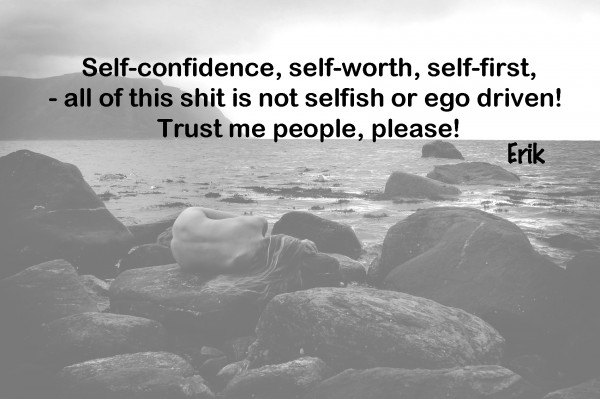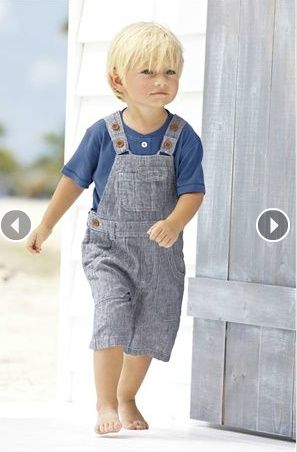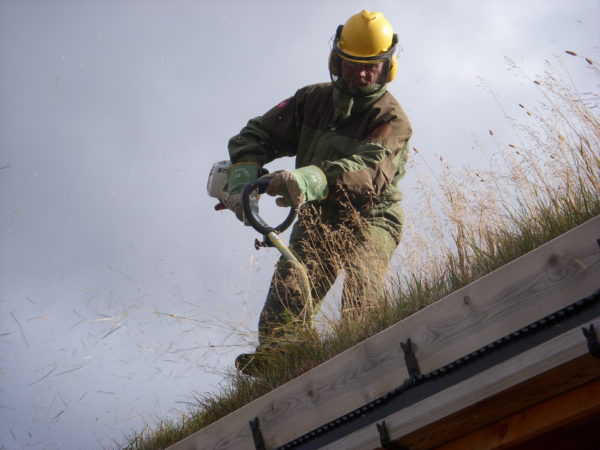We’ve been blessed with such beautiful weather here in Houston for the last several days, so working outside has been a delight. Even better, I think it’s going to stay this way for several days, including when my friend, Leslie, and her boyfriend, Ray come to stay. What’s crazy is that Leslie is a blog member who lives all the way in Ireland, and in spite of the distance, Channeling Erik has brought us together to create a rich and long lasting friendship. I’m so happy and grateful to have so many friends from all parts of the world. I can’t wait to get a laugh out of her funny Irish brogue (far different from my funny Texas drawl) and to get into a lot of trouble together. I wish she could stay for longer. In fact, I wouldn’t mind adopting her!
Here, Erik talks to us about the different perspectives of loss.
Erik: Okay, for all of you who are watching, get your fingers out of your nose. The rest of you get your fingers out of your butt.
I laugh. I doubt he said, “butt.”
Erik: Make a commitment to yourself to pay attention to how you feel. You know I’m always preaching about emotional honesty, and the first step to doing that is to acknowledge that you’re actually feeling something. That will lead you the rest of the way. I don’t have to teach you. As soon as you do that, you’re going to want to start grooming yourself to be the person you want to be.
Me: It’s all about awareness.
Erik: Yes.
Me: You gotta dig deep and look inside.
Jamie: Okay. He’s somehow making that into a sexual reference.
Me: Oh god, of course he is. Any chance. Any little crack in the door you give that guy, and he’ll take it. He’ll run with it. Okay, guess what we’re going to talk about? Loss. There are so many possible losses in our lives: health, self-esteem, control, direction, faith, and today, I’d like to talk about loss of control.
Jamie covers her mouth, looks away and giggles.
Me: Uh oh. What’s up?
Jamie remains silent. Must not be something for prime time TV.
Me: Let’s first talk about loss, in general. Tell me about loss besides the fact that it sucks.
Jamie (to Erik, sternly): Straighten up! No I’m not, Erik. Go. (Clapping her hands) Come on!
Erik (waving his arms palms down across the floor): Biiiigg misconception. There really is no loss because we’re part of a whole. So if you’re thinking about the loss of a father, a child, loved one, best friend, animal, you know, plant, whatever it is, you truly haven’t lost them. There is transition. There is a farewell to the physical body, but I think everyone is aware that communication isn’t based on the physical body. Communication is based on language exchange, emotional exchange.
Jamie blushes.
Jamie: He says the physical part is more for, let’s just say, touching.
Not again. There will be no peace for this woman!
Erik: Even though that has a level of intimacy, it’s not necessary to find the depths of another person. You do that through communication, and the loss of a person through their death doesn’t take away from your ability to keep that relationship and find that intimacy through communication because it still exists. But, you’re humans and you’ve been taught that when death occurs, it’s an absolute loss, and you can’t find it. You walk around and look for it. That’s right. That same kind of experience with that person that is now gone can’t be repeated, can’t be found, but it does continue [in a different way.] So I’m—
(Pause)
Jamie (to Erik, with head cocked): What did you say?
Jamie (to me): He’s confused! He’s confused on how you want to talk about the topic because it’s really not about actual loss. It’s about how you adapt to a new way of communicating with your loved one because they’re not—he’s shouting and waving his arms!
Erik: They are not dead! They’re not lost.
Me: But you talk about how you don’t have the commination, etc., but of course you can. There’s really nothing gone except that shell. What we get out of the touches and hugs doesn’t come from the shell. It’s from the emotions and the language.
Erik (one index finger tapping his nose and the other pointing at me): Yes.
Me: Okay. Right on the nose. But loss, in general, doesn’t just have to do with just the death of our loved ones. There are other types of losses.
Erik: Right, but loss of money, loss of status, loss of title, um, what other loss can you think of, Mom?
Me: Oh gosh. I have a list of like a million of them.
Never been one to hyperbolize.
Me: So what can you say about other types of losses aside from the loss of life? Is it the same?
Jamie: He’s getting really rowdy, so Erik, get yourself together and talk again.
(Pause)
Erik: So loss of money, loss of self-esteem, loss of title, loss of an ability, all of these are not really losses. You only perceive them as losses because we’ve been trained that there is a right and a wrong, that there’s a positive and a negative. There is no true disappearing act. There are transitions; there are degrees; there’s a scale of gray, you know? It’s not one definite vs. a different definite and a true absence. So, it we take loss of money or loss of status, like you got demoted or you got fired, and you can’t find a job, this kind of loss of being able to identify who you are through a career or through giving back to the community. This kind of shift, and I’m not saying you have to look at every (air quotes) loss that’s happened to you through rose-colored glasses and everything is half-full and positive cuz a lot of that is bullshit, too. A lot of that is a cover-up technique. I really want you to look at it as what it is and what it can give to you. What I mean by “what it can give to you,” I’m not saying that it has to be positive or negative. I’m just asking you to look at it for what it is. Most of the time, for the loss of a job, it’s showing you that weren’t walking the path that you wanted to be on in the first place because if you’re absolutely connected to your emotional honesty and doing what you love to do and your happiness—
Jamie (smiling): He’s talking so fast!
When she says this, the speed of the video goes way down. How ironic. Erik, are you playing with us here?
Me (laughing): It’s so funny because, when you said that, it sounded like, (I repeat the sentence in slo-mo mode. Was that Erik? Did you do that?
Jamie flings herself back in laughter.
Jamie: Did I do that?
Me: Yeah.
Jamie: I hope he’s not puppeteering me! It’s like when I’m paying attention and listening and repeating so quickly, I interfere, so…
I have no idea what she means by this.
Jamie: He’s going back to it.
Erik: If you’re really doing what pleases you, what you really desire to do, you’re not going to stumble across a loss at all. You might stumble across a transition, but it’s only giving you an opportunity to add something else to your life that you’re interested in. So when people are seeing it as a loss, I like to step in and say, “Well, shit! You probably really didn’t need what you had to begin with. You probably didn’t really want it to begin with.
I don’t think that applies to losing a loved one. How can it?
Me: Or maybe things just changed. Maybe you needed it or wanted it to begin with, but that’s not to say that you were on the wrong path. It could be, “Okay. My path has changed.” What about that?
Jamie mimics him doing the whole gansta style hand moves.
Me (in a mock rebuke): You’re being so black and white!
Jamie (still experimenting with the hand movements): I don’t know how he’s doing it, but he’s dong some hand gestures, and he’s like, “Yay-yah.”
Me: Gangster moves.
Erik: You’re right. Sometimes your needs and passions change midstride, but as humans, we’re taught that we have to focus on what’s in front of us and not surrender what we’ve started. That’s just a crock of shit, too. You have to acknowledge that if you’ve changed midstride, you situation needs to change. That’s just like saying, “I need a break. I’m working too hard, and I need a break. I need to take some time off.” But you don’t do it. You keep going; you keep going because that’s either the way you’re (air quotes) sabotaging yourself quietly, or that’s the way you’ve been trained. You’ve been trained to keep on. Don’t take a break. Taking a break means laziness and weakness. So you know what happens? Can you guess, Mom?
Me: You have a breakdown?
Erik: You have a breakdown.
Me: You get gray hair like me.
Erik: You’ll break your arm. There’s your break. Now you can’t type anymore.
That would definitely force to to take a break in my writing, but thankfully I don’t need or want that break, so sorry, Ortho docs.
Erik: Something will occur in your life because you’re making these statements and manifesting them. You’re giving it energy. You’re giving it thought. You may—
(Pause)
Jamie (to Erik with a puzzled look): What do you mean? So it’s not having direction?
Erik: So even if you’re saying, I need another break,” but you’re not doing anything in your life to create this (air quotes) break or this vacation, you know, this rest that you need, your life or your environment doesn’t know how you want that break delivered so it’ll give it to you in the easiest way possible. That might mean breaking your arm or getting fired from your job. It might be blowing out a tire on your car so you can’t make it in that day. That gives you a break.
Me: Ah!
Erik: You have to take responsibility that, what’s coming your way, you’ve played a part in it whether you are consciously aware of it or not. You have played a part. You have surfed that wave, and you’re riding it in.
Me: That makes sense. Well, you know, maybe if we look at loss as a disguised opportunity to travel down a change in our path, one that we designed for ourselves, would that help?
Jamie (grinning widely): Yeah, he’s doing this really broad smile and going (she slowly nods her head up and down.)
Me: You’re so cute. So what can people do? You’ve said why [loss] occurs and what’s going on where that’s concerned, but how can we change our perspective; what do we need to do?
Erik: In general, I would like to look at loss as a quiet manifestation. Somehow, like I mentioned before, you’re surfing the wave; you’re riding it in. Now, the talent is –and if you can’t do the talent, rely on someone who can do it for you like a therapist or a life coach to get you to step back and rise above it so that you can see the parts of your life or how you’re interacting or why your environment is feeding you that loss. If you can’t do it yourself, get somebody else who can. When you’re able to pull back, then you can see what is your—
Jamie: He said, “Your truest self,” and I said, ‘Can you describe that?’ What he means is, when you pose the question to yourself, if money wasn’t a concern and there was no problems, what would you be doing? How would you play that out if you had no concerns?
Erik: Often, that gives you the absolute direction that your heart, soul, body and mind want to go in, but you’re creating these walls or assuming that there are walls you can’t get over. You’re blocking yourself. I would look at that, and most of the time, 98% of the time, you’ll find out why that loss is in your life.
Me: It’s like stepping in dog shit. You can sit there and walk around with it, or you can also look at it from a different perspective. “Oh, that’s dog shit on my shoe,” and then you can go and clean it off. It seems like when you step away from a situation like out of the dog shit and into the clean grass, it just really helps. You know, broaden your perspective instead of getting mired in it.
Beats the crap out of ignoring what’s going on and having that smell waft up to your nostrils all day and bringing the shit into your house and onto your carpet.
Erik: Yeah, and it can actually be that kind of frustration that reminded you that you stopped paying attention to where you are. For some reason, at that moment, you were ignoring where you are, and you put yourself into a situation that’s not attractive. You’ve stepped in the shit.
Not attractive, indeed.
Erik: And this little remembrance is going to then kick in so when you’re finishing with you walk, guess what? You’re watching where you’re stepping. That can save you from so much other shit.
Me: Well I look at it, when I’m struggling, I kind of pull myself up and look down at my life [with a third party viewpoint.] I see it as a chessboard. “Am I being a pawn? Am I allowing circumstances or people to push me around in a direction I don’t want to move in? “ It also reminds me that life is just a little game. You’re going to lose some of the little moves; they’re going to jump your bishop or whatever—I don’t know anything about chess—
Jamie is smiling and wiggling around in her chair. I know she’s dying to tell me something.
Me: Quit laughing! I’m getting lost here! Throw me a lifeline, won’t you?
Jamie: “Jump bishop.” You know what he just showed me.
Me: Oh, no.
Jamie covers her face.
Me (in mock exasperation): Oh, Erik!
Jamie: He’s so funny in that way, too. I try not to react to it, but it is funny. He’s so sharp and quick and witty. It throws me off my game. Still, it throws me off my game. How many years are we into this now? And it just, like…
Me: I know. It’s amazing. He always has something up a sleeve, that boy! Yeah, but I’m saying if you look at it as if your distant from it, kind of stepping back and checking it out.
Jamie: Right. He loves that.
Erik: That’s why I was saying. “If you can’t do that for yourself the way my mom does it, then you need to reach out to someone that can help you like the therapist or like the life coach.




